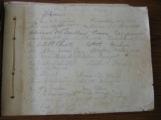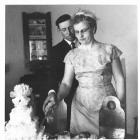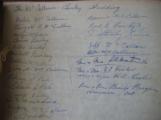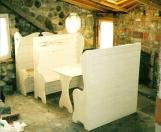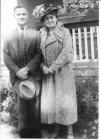27
Due to the uniqueness of the Little Stone House and the determination and hard work by Annie Aldred, the Tea House flourished and its reputation spread through out Southern Ontario and into the United States. Longwoods Road (Highway # 2) was the shortest direct route between Detroit, Michigan and Buffalo, New York that brought many American travelers past the Little Stone Tea House. The American Automobile Association listed the Tea House in their directory, which was a great honour to Annie.29
Once more, Annie Aldred was faced with unanticipated events. Business declined when the United States entered into Second World War forcing the Tea House to close in 1942. Annie moved to Ottawa to take a position with the federal finance department until 1945 when Amities was declared. Not forgetting her dream, she returned to re-open the Little Stone House Tea Room in 1946.31
Upon re-opening the Little Stone Tea House, it became fashionable to have one's wedding/wedding reception on the grounds of the Little Stone Tea House.33
The picturesque setting of the house and the gardens added to the joyous occasion.35
For many years after the closing of the Little Stone Tea House, the grounds and the house were desired backdrop for those all important pictures.37
The Stone Tea House needed to be furnished to accommodate customers. This was at a time when goods and money were scares due to the Great Depression of 1930's.38
Original wooden chair build by Arnold and Frederick Aldred1940's
Bothwell, Ontario, Canada
 Credits:
Credits:Bothwell-Zone Oil Museum
